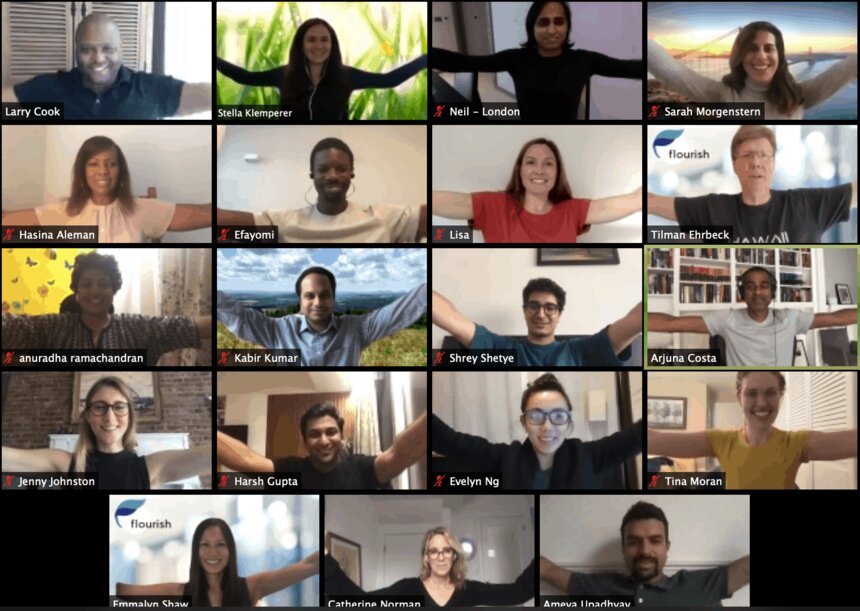How We Kept Up Making a Difference

Towards the end of February, we got increasingly nervous in our firm about the spreading pandemic. We decided to cancel our global team retreat scheduled for the following week in India and asked everyone to stay put. It’s been six months since then, working from home, trying to be helpful remotely. How has that gone?
Our portfolio companies and eco-systems partners across the globe have done amazing work in the last half year. By virtue of their forward-looking service and business model innovations -- digital-only, mobile-first -- many were in the position to be immediately helpful to their customers. For example, challenger banks like Albo in Mexico, Neon in Brazil, and Aspiration and Chime in the U.S., have seen their transaction volumes surge since the onset of the pandemic as people around the globe switched as best as they could to working, living, and doing groceries from home. InsurTech companies across our portfolio quickly leveraged their expertise to deploy new protections. StrongArm in the U.S. used its wearable devices for blue-collar workers in the logistics space to provide safe-distance alerts. MicroEnsure with its partners in Pakistan was able to offer a COVID-19 hospitalization cash coverage within days.
In Africa, portfolio companies Apollo and Pula stood ready to help farmers finance and protect new crops during the critical planting cycle over the summer. In Bangladesh, social commerce player ShopUp switched to the provision of essential goods. On the policy and infrastructure side, our partner organization the Alliance for Innovation in Regulation (AIR) organized weekend hackathons to help improve the design of critical U.S. safety net efforts for individuals and small businesses. FinRegLab developed policy recommendations for the use of alternative data sources in credit-scoring -- a crucial innovation in a time when historical credit worthiness metrics might have lost their meaning.
Internally as a team, we held up reasonably well. The lockdown has impacted people differently. Some of the young professionals are home alone and ready to work more, to have more interactions. Parents of school-age, younger kids are stretched juggling work and family responsibilities. We decided early on to cut each other slack and be conscious of our different needs. We were in for a marathon, not a series of sprints. Our monthly, quick pulse surveys indicate that morale has remained high. Against the backdrop of a K-shaped recovery and widening inequality, everyone on the team believes that our work contributing towards a better and fairer retail financial system is more important than ever. Our ability to help portfolio entrepreneurs and eco-system partners with advice and tangible resources has given us a sense of agency.
After the initial months of focusing on helping the existing portfolio and making sense of what was happening, we also started to make a series of new investments. As much of the world has accelerated to moving lives and work online, our conviction in investments around financial innovation embedded in tech-led platforms and B2B FinTech infrastructure improvements that support new industry structures has strengthened. From July-September, we decided on a series of platform investments for gig-economy workers, small businesses, and small-holder farmers across several geographies as well as a similar number of B2B FinTech infrastructure investments to improve the digital payment experience and provide API banking services. By year-end, we will have deployed as much capital in 2020 as we had planned at the outset –before the pandemic.
For most of these new investments, we had existing relationships with the founding teams and/or regional co-investors. But in some cases, we also developed comfort around an investment decision made purely online and remotely. In Indonesia, the field staff of a company where we were conducting due diligence helped us manage customer interviews, essentially orchestrating impromptu WhatApp video conferences. We would have needed the field staff to translate for us both from and to Bahasa anyhow. Doing customer interviews remotely enabled much broader and diverse coverage than we would have achieved during an in-person visit, which would have likely focused on Jakarta and its surroundings on Java.
On a personal level, I was very concerned about the global outlook six months ago, perhaps earlier and more deeply than others. I might now be more serene. It seems that we may have a vaccine widely available globally in Q2 of 2021. We will not and should not simply return to the way we were working before. The last six months have taught us what we can do better and differently. But I feel confident that we can continue to make a positive contribution over the next six months, and I am eager to accelerate our efforts from then on, helping families and small businesses around the globe capture opportunities and increase their resilience.